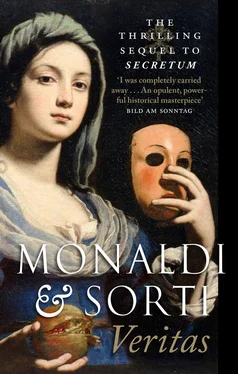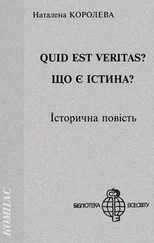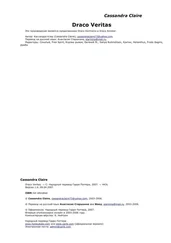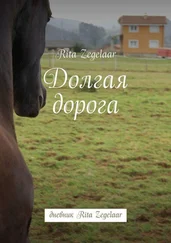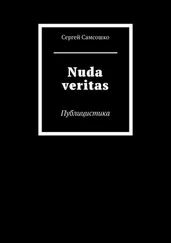Rita Monaldi - Veritas
Здесь есть возможность читать онлайн «Rita Monaldi - Veritas» весь текст электронной книги совершенно бесплатно (целиком полную версию без сокращений). В некоторых случаях можно слушать аудио, скачать через торрент в формате fb2 и присутствует краткое содержание. Жанр: Исторический детектив, на английском языке. Описание произведения, (предисловие) а так же отзывы посетителей доступны на портале библиотеки ЛибКат.
- Название:Veritas
- Автор:
- Жанр:
- Год:неизвестен
- ISBN:нет данных
- Рейтинг книги:3 / 5. Голосов: 1
-
Избранное:Добавить в избранное
- Отзывы:
-
Ваша оценка:
- 60
- 1
- 2
- 3
- 4
- 5
Veritas: краткое содержание, описание и аннотация
Предлагаем к чтению аннотацию, описание, краткое содержание или предисловие (зависит от того, что написал сам автор книги «Veritas»). Если вы не нашли необходимую информацию о книге — напишите в комментариях, мы постараемся отыскать её.
Veritas — читать онлайн бесплатно полную книгу (весь текст) целиком
Ниже представлен текст книги, разбитый по страницам. Система сохранения места последней прочитанной страницы, позволяет с удобством читать онлайн бесплатно книгу «Veritas», без необходимости каждый раз заново искать на чём Вы остановились. Поставьте закладку, и сможете в любой момент перейти на страницу, на которой закончили чтение.
Интервал:
Закладка:
It is possible to verify that the chimney-sweep never invents anything by studying the numerous sources that describe student life at the beginning of the eighteenth century: for example, Rudolf Kink, Geschichte der kaiserlichen Universität zu Wien , Vienna 1854, or Peter Krause, “O alte Burschenherrlichkeit”. Die Studenten und ihr Brauchtum , Vienna 1987, or Uta Tschernut, Die Kärntner Studenten an der Wiener Universität 1365–1900 , typewritten degree dissertation, Vienna 1984. The bizarre student ceremony known as the Deposition, during which Penicek is appointed Simonis’s Pennal, follows an ancient and genuine tradition, as is explained by Wolffgang Karl Rost, Kurtze Nachricht von der Academischen Deposition , Jena (no publication date).
The tricks, expedients, superstitions and devices used by Simonis and by his student friends are taken from the highly entertaining Henricus Caspar Abelius, Leib-Medicus der Studenten und Studenten-Künste , Leipzig 1707.
Even the tiniest detail concerning the wretched life of chimney-sweeps in Italy is authentic; see, for example, Benito Mazzi, “Fam, füm, frecc, il grande romanzo degli spazzacamini”, in Quaderni di cultura alpina , 2000. Equally authentic is the description of the happier life led by Italian chimney-sweeps in Vienna and the many imperial privileges granted to their corporation: cf. Else Reketzki, Das Rauchfangkehrergewerbe in Wien. Seine Entwicklung vom Ende des 16. Jh. Bis ins 19. Jh., unter Berücksichtigung der übrigen österreichischen Länder , dissertation, Vienna, 1952. All the details of the Gewerbe IV, the business number four, donated by Atto Melani to his chimney-sweep friend, can be checked in the deeds of the chimney-sweeps’ corporation held in the Vienna City Archive (Wiener Stadt- und Landesarchiv), including the vineyard and the house “close to the church of St Michael” in the Josephina suburb, which has now become the beautiful district of Josefstadt.
Free Time, Taverns, Feasts and Other Details
All the details concerning the incredible number of feast days, of processions, the continual absences from work for all kinds of religious observances, the general level of comfort even in the lowliest strata of society, and also the antelucan hours of the start of day, including the call of the night guard (“Now rise O Servant, praise God this morn, the light now gleams of a new day’s dawn”), inns, games, taxes, spies, free time and all other descriptions of life in Vienna, are authentic in every detail, starting with the Hetzhaus and the animal fights.
As Gerhard Tanzer records in his admirable degree dissertation on amusements in Vienna in the eighteenth century ( “In Wienn zu seyn ist schon Unterhaltung genug!” Zum Wandel der Freizeit im 18. Jh ., Dissertation zur Erlangung des Doktorgrades der Philosophie, Vienna 1988) and in the essay that derived from it ( Spectacle müssen seyn. Die Freizeit dr Wiener im 18. Jh ., Vienna-Cologne-Weimar 1992), between 1707 and 1717 there was great resistance on the part of innkeepers to the taxing of bowling alleys, exactly as Simonis tells the chimney-sweep when they go looking for Populescu. Those, like the Romanian student, who denounced rule breakers, were as common as mud. The payments handed out to them exceeded the revenues from tax, but people soon resigned themselves to looking on the bright side: the sums won at gambling all added to the money in circulation; the important thing was that money should not be sent abroad! And so in later years, as with dancing, gambling proliferated wildly. People danced and gambled everywhere, grumbled the conservatives, even when the Holy Sacrament was passing in procession outside the tavern.
The number of taverns in Austria at the time, and the list of dishes devoured at wedding dinners is taken from Franciscus Guarinonius, Die Greuel der Verwüstung menschlichen Geschlechts , Vienna 1610.
Despite what the reader may think, the scene in which diners indulge in all sorts of wild behaviour, witnessed by Atto, the chimney-sweep and Domenico on the fourth day, is not in any way an exaggeration on the authors’ part; the actions reported (blowing on hot food and spattering oil into other diners’ eyes, pouring wine down people’s shirt fronts, using napkins to blow one’s nose, pulling the tablecloth to bring the roast meat closer etc.) are all amply described — in order to castigate them! — by the famous court preacher, the barefoot Augustinian Abraham from Sancta Clara (cf. also E.M. Spielmann, Die Frau und ihr Lebenskreis bei Abraham a Sancta Clara , typewritten degree dissertation, Vienna 1944, pp. 125–126).
The incredible secret exchanges of bread and wine between Turks and Viennese during the 1683 siege are historically substantiated too: see K. Teply, Die Einführung. . op. cit. , p. 30. But as Teply points out (p. 35), when the historian Onno Klopp ( Das Jahr 1683 und der folgende grosse Türkenkrieg bis zum frieden von Carlowitz von 1699 , Graz 1882) dared to question the conduct of the civilians who had defended the besieged city two hundred years earlier, he was immediately silenced by a hostile chorus of journalists, politicians and academics, with questions even being raised in the city council.
Nothing is invented in Koloman’s account of the incredible variety and quantity of fish that once reached Vienna. It was not until the 1780s that things changed: Emperor Joseph II closed many monasteries — which had previously been the main suppliers of good fish — and did away with many religious feasts with obligatory fasting. The fish recipes created to circumvent this obligation fell out of favour. Very soon the Viennese adopted a saying from the Elizabethan age, with which the Protestants indirectly made fun of the Catholics: “He’s a good person, he doesn’t eat fish.”
The alehouse known as The Yellow Eagle ( Zum Gelben Adler ), also known as the “Greek tavern” ( Griechenbeisl ), situated in the meat market (today’s Fleischmarkt), where Simonis takes Atto and chimney-sweep at the beginning of the sixth day, is still active. It is the famous inn where, according to legend, during the plague of 1679, the storyteller Augustin composed his famous Lied: O du, lieber Augustin, alles ist hin . .
The Blue Bottle Café (Zur Blauen Flasche) really existed and was the first place authorised to sell coffee.
The inn known as the House Goat (Zum Haimböck in German) still exists today. The tavern, which has splendid food and is much loved by the Viennese, is now called 10er Marie ( Zehner Marie ). It took on the new name in the mid-eighteenth century, combining the street number with the name of the host’s beautiful daughter. Unfortunately it is no longer surrounded by the beautiful vineyards of former days, but by ugly apartment blocks: to rediscover the unspoilt countryside described by the chimney-sweep one has to climb up to The Pulpit (Am Predigtstuhl in German), on the hill now known as Wilhelminenberg, where the chimney-sweep goes on the sixth day.
A small clarification on the Buschenschank, the hostelries similar to the Roman fraschette : today they are commonly known as Heuriger , taking their name from the new wine that is served there.
The poor quality of the wines of Liesing and of Stockerau, referred to by Cloridia, is noted in an almanac for the year 1711, Crackauer Schreib-Calender auff das Jahr nach Christi Geburt M.CC.XI durch M. Johannem Gostumiowsky, in der Hochlöbl. Crackauerischen Academia Phil. Doct. Ordinarium Astrologiae Professorem, und Königlichen Mathematicum , Krakow 1710.
The Viennese have always had a particularly sensitive palate when it comes to wine. It is well known that in 1453 Emperor Frederick III, enraged by a particularly unsuccessful grape harvest, decreed that the wine should be used instead of water to mix the cement needed to build the Cathedral of St Stephen.
Читать дальшеИнтервал:
Закладка:
Похожие книги на «Veritas»
Представляем Вашему вниманию похожие книги на «Veritas» списком для выбора. Мы отобрали схожую по названию и смыслу литературу в надежде предоставить читателям больше вариантов отыскать новые, интересные, ещё непрочитанные произведения.
Обсуждение, отзывы о книге «Veritas» и просто собственные мнения читателей. Оставьте ваши комментарии, напишите, что Вы думаете о произведении, его смысле или главных героях. Укажите что конкретно понравилось, а что нет, и почему Вы так считаете.
